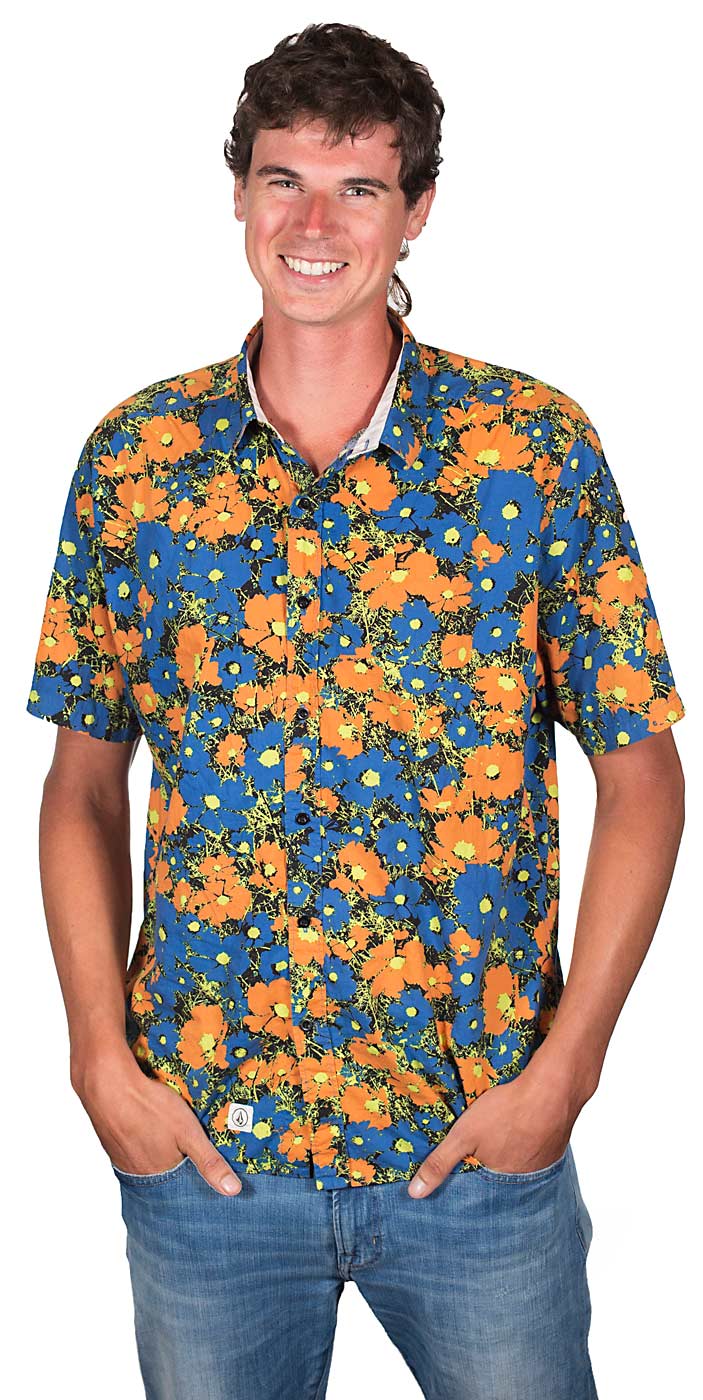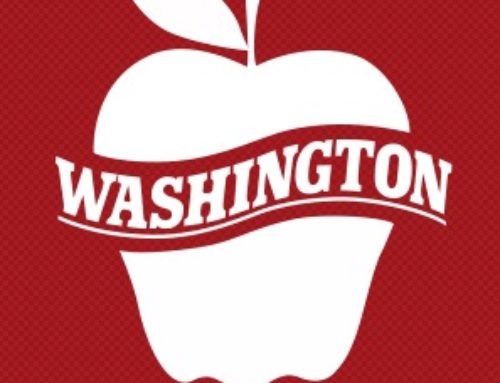family background / Harrison grew up in the Annapolis Valley of Nova Scotia and is working with his family to transition their farm to high-density systems. He is the son of Julie-Anna and Stephen Van Meekeren.
age / 25
crops / Apples
business / Van Meekeren Farms
 How did you get your start?
How did you get your start?
I grew up on the farm and I’ve always roamed out in the orchards, being part of it. I remember starting by picking drops and sucker pruning — they were our go-to jobs that weren’t hard for us kids to do. A lot of times I’d come home during my Christmas or summer breaks and end up working for the company during my vacations.
How did you learn to be a farmer?
It’s kind of funny, but I didn’t pursue a formal horticultural education when I was growing up. I believe you’re much more open to new ideas if you have a fresh point of view to start with.
In a traditional educational route, I think you get closed-minded. But now, I am studying with every problem that arises. I try to find solutions as if I’m in school every day on the farm. I’m learning what’s new, now.
What do you enjoy most about growing fruit trees?
I really enjoy pruning. With pruning, it’s fun once you understand what a tree will do when you make cuts or try to manipulate the growth to fit your structure. I enjoy being able to shape it and learn what types of buds grow in response.
Those cuts are made to better manage crop load. Once I gained the basic knowledge of pruning a tree, then I got to play around in the orchard and have some fun.
What are your current challenges?
I think the biggest challenges seem to be different every season. As a farmer you deal with weather, pest pressures, fungus issues, biennial bearing, etc. There’re things to take care of every year. Another challenge is finding time to continue learning on the farm and grow.
What horticultural areas are you focusing on?
A huge part of what I’m learning is about improving the soil nutrition on our farm. When you build a million-dollar house, it seems obvious to want a solid foundation. You aren’t going to build it in sand, right? I think that’s the same with soil.
You have your soil, your tree and support system, but at the very foundation you have everything you need within your soil. I think we need to better manage our nutrition more sustainably.
One of the problems of apple growing right now is dealing with a drop in crop profit while the cost of farm inputs are going up. So how can we stop our input costs from going way up? I think it can be better managed through organic matter.
I think it’s critical to learn about our foundation, our soil nutrition. It’s kind of corny, but I like to say that organic matter, matters.
How are you integrating these ideas on your farm?
I started planting cocktail cover crops, which typically is a wide range of ground plants. What I use includes about five different plant types: cereals, grasses, brassicas, chenopods and legumes.
When they are planted all together, something is always flowering on the orchard floor. Throughout the season, the cover crop is always trapping carbon and bringing it down into the soil.
As farmers, why don’t we take advantage of the available carbon in the air by trapping it back into our soil with a cover crop system? When using a synthetic fertilizer in your soil, it’s gone and used up in about a year.
Say you grow a grass and crop it for organic matter by putting it back into the ground — it’s going to benefit your soil for many years.
To me, a bag of cover crop seed is worth way more than a bag of fertilizer. Another benefit of having different kinds of plants growing in your orchard is not having a monoculture.
I think we need to grow ecosystems and let nature take care of some of the problems we face.
What would you tell other young growers about farming?
I think younger growers have the opportunity to be at the very beginning of the food chain. You get to grow trees and take care of them. It’s very humbling to work with the trees. I think if you get to share the work that you’ve put in all year with people who buy the fruit, there’s no better job than that.
– TJ Mullinax






Leave A Comment